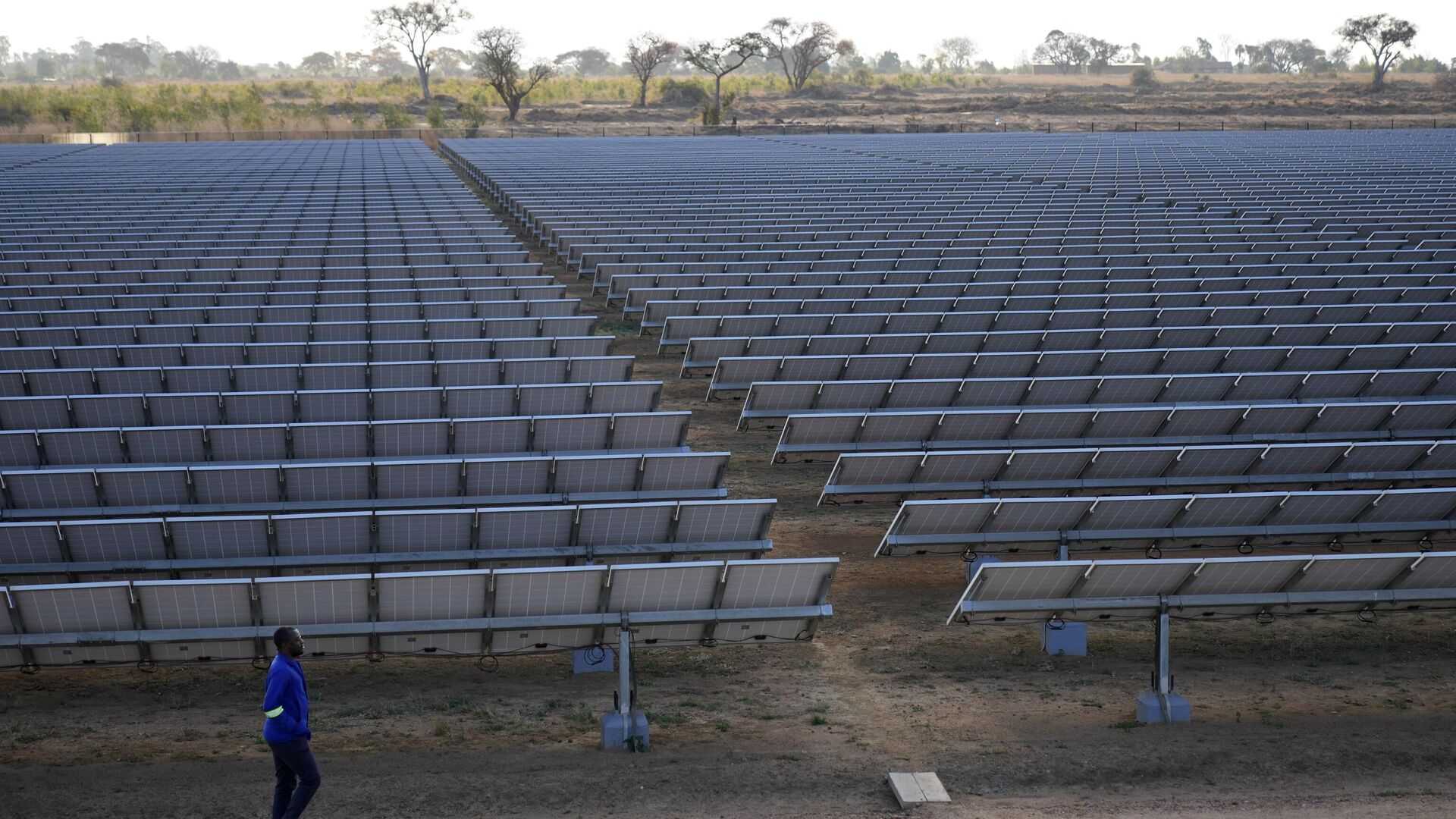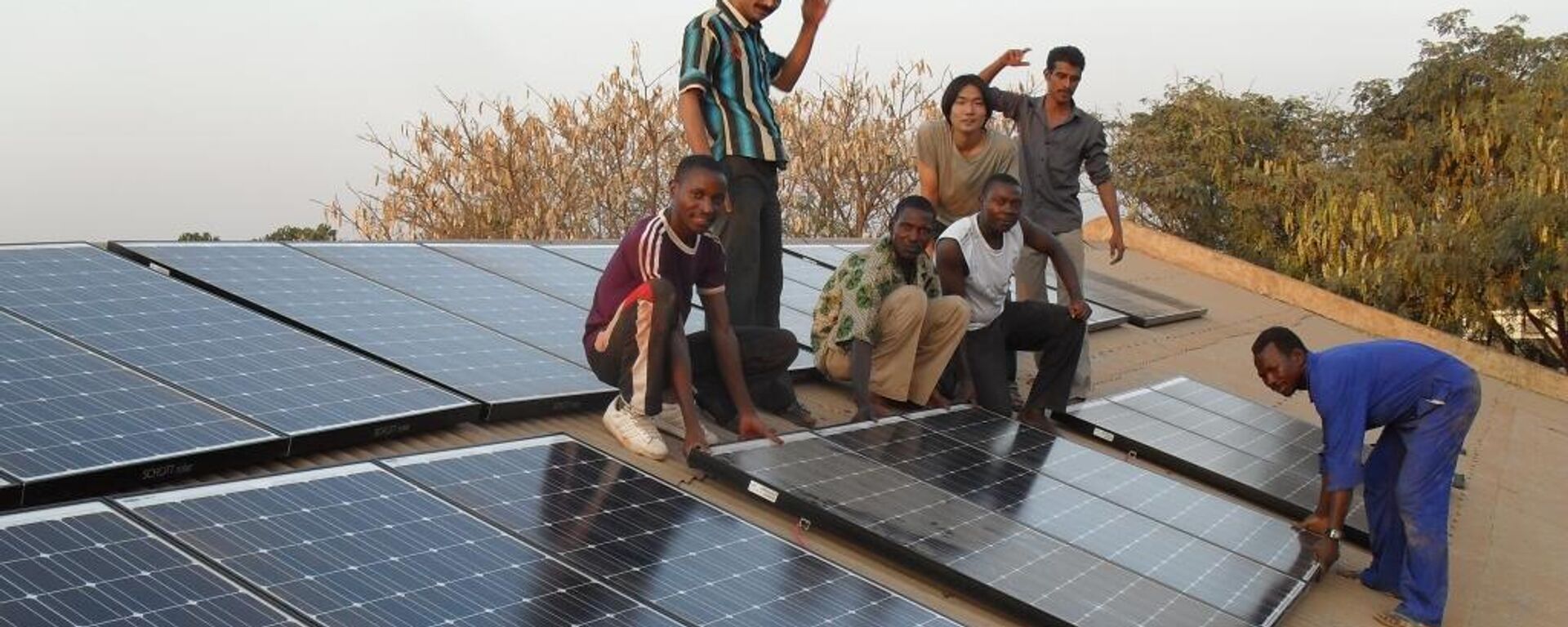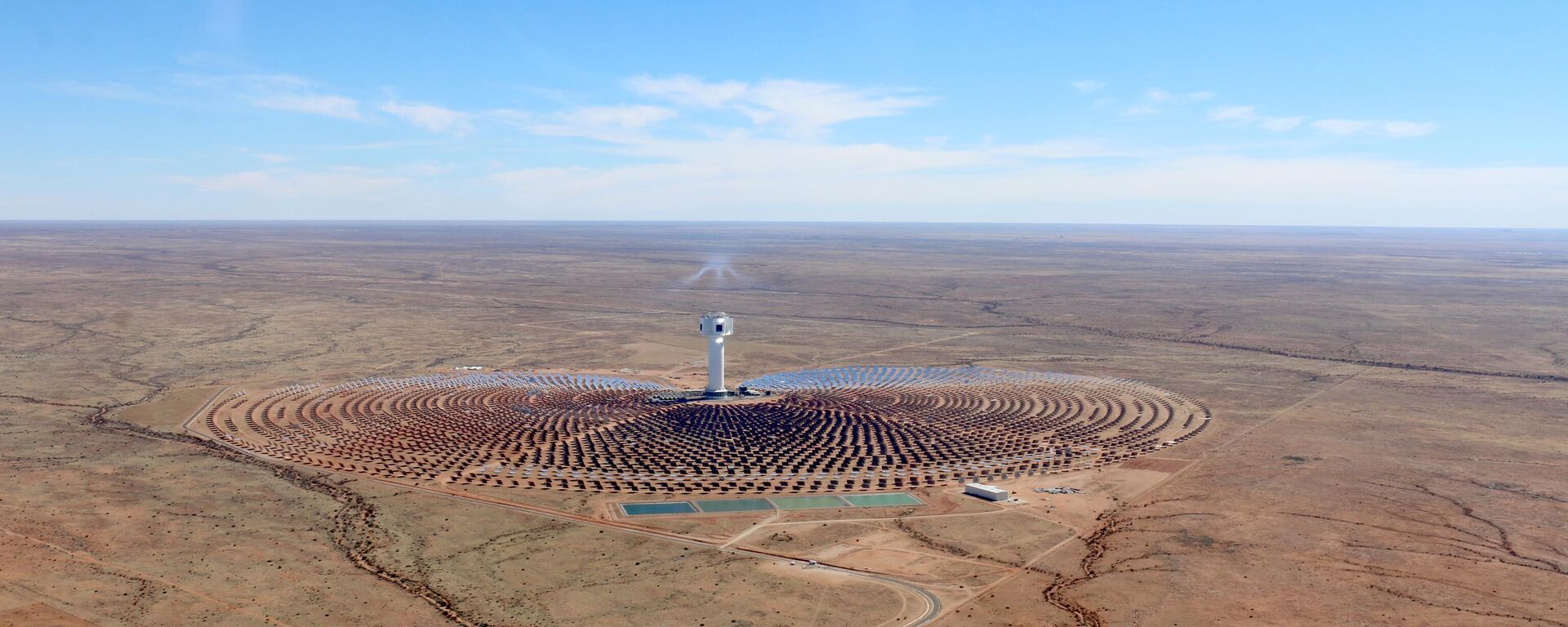https://en.sputniknews.africa/20231015/renewable-energy-jobs-in-africa-show-downward-trend-despite-investments-report-1062814571.html
Renewable Energy Jobs in Africa Show Downward Trend Despite Investments: Report
Renewable Energy Jobs in Africa Show Downward Trend Despite Investments: Report
Sputnik Africa
Last year, the International Renewable Energy Agency (IRENA) said Africa is greatly benefiting from renewable energy development. It was noted that the energy... 15.10.2023, Sputnik Africa
2023-10-15T14:08+0200
2023-10-15T14:08+0200
2023-10-15T14:47+0200
sub-saharan africa
international energy agency (iea)
china
asia
international workers' day
network
renewable energy
energy
economy
economic growth
https://cdn1.img.sputniknews.africa/img/07e7/0a/0f/1062814719_0:160:3072:1888_1920x0_80_0_0_f4ac8d200ddb4ad5ff672edc678198a8.jpg
The substantial expansion of Africa's renewable energy sector and continued investments over the past five years have not resulted in significant employment growth within the industry, according to the latest Renewable Energy and Jobs report, published by IRENA and the International Labor Organization (ILO).Thus, despite a consistent increase in the installed capacity of renewable energy and greater investments over the past five years, there is no indication that the green transition has resulted in a significant increase in job creation across Africa.Meanwhile, renewable energy jobs worldwide have been increasing consistently with the growing investment and installed capacity.The report showed that global renewable energy employment has continued to expand, reaching an estimated 13.7 million direct and indirect jobs in 2022. This represents a 24.5% increase compared to the 2018 figure of 11 million and nearly double the 7.3 million workers in 2012.Data from the International Energy Agency (IEA) further reveals that investments in the global renewable energy sector increased by 19.5% to $382 billion in the five years to December 2021. The installed capacity of clean energy sources globally reached a record high of 3.09 million MW in 2022, a growth of more than 30 %.The report emphasized that the current renewable energy employment is concentrated in a small number of countries, indicating the uneven geographical distribution of "equipment manufacturing and capacity installations." Almost two-thirds of all renewable energy jobs are in Asia, with China representing 41% of the global total. Over 58% of renewable energy employees work in China, Brazil, the United States, and India. In contrast, Africa only accounts for 2.3% of clean energy jobs worldwide. There is still a limited production of renewable energy equipment such as solar panels, wind turbines, and water turbines in Africa, resulting in fewer skilled job opportunities.The report recorded approximately 5 million jobs in the field of solar energy in 2022. It was noted that solar photovoltaic (PV) is the most rapidly growing sector among renewable energy technologies, comprising over one-third of the total renewable energy workforce. Moreover, women occupy 40% of these jobs.
https://en.sputniknews.africa/20231011/africa-expects-positive-changes-in-energy-balance-says-south-sudanese-official-1062700305.html
https://en.sputniknews.africa/20230629/this-country-reportedly-dominates-sub-saharan-africas-renewable-energy-market--1060213319.html
china
asia
Sputnik Africa
feedback@sputniknews.com
+74956456601
MIA „Rossiya Segodnya“
2023
News
en_EN
Sputnik Africa
feedback@sputniknews.com
+74956456601
MIA „Rossiya Segodnya“
Sputnik Africa
feedback@sputniknews.com
+74956456601
MIA „Rossiya Segodnya“
international energy agency (iea), china, asia, international workers' day, network, renewable energy , energy, economy, economic growth
international energy agency (iea), china, asia, international workers' day, network, renewable energy , energy, economy, economic growth
Renewable Energy Jobs in Africa Show Downward Trend Despite Investments: Report
14:08 15.10.2023 (Updated: 14:47 15.10.2023) Last year, the International Renewable Energy Agency (IRENA) said Africa is greatly benefiting from renewable energy development. It was noted that the energy transition would generate four times more jobs on the continent than those lost in the fossil fuel sector, resulting in a substantial net gain for regional economies.
The substantial expansion of Africa's renewable energy sector and continued investments over the past five years have not resulted in significant employment growth within the industry, according to the latest Renewable Energy and Jobs
report, published by IRENA and the International Labor Organization (ILO).
Data from IRENA indicates that the installed capacity of renewable energy in Africa rose by 18% to 63,034MW in 2022. Investment in the sector also increased by 44% over five years, reaching $13 billion. However, the number of jobs decreased from the 322,000 recorded in 2018 to 320,000 in 2022.
Thus, despite a consistent increase in the installed capacity of
renewable energy and greater investments over the past five years, there is no indication that the green transition has resulted in a significant increase in job creation across Africa.
Meanwhile, renewable energy jobs worldwide have been increasing consistently with the growing investment and installed capacity.
The report showed that global renewable energy employment has continued to expand, reaching an estimated 13.7 million direct and indirect jobs in 2022. This represents a 24.5% increase compared to the 2018 figure of 11 million and nearly double the 7.3 million
workers in 2012.
Data from the International Energy Agency (IEA) further reveals that investments in the global renewable energy sector increased by 19.5% to $382 billion in the five years to December 2021. The installed capacity of clean energy sources globally reached a record high of 3.09 million MW in 2022, a growth of more than 30 %.
"We can expect the creation of many millions of additional jobs in the coming years and decades, provided that education and skills development programs are appropriately expanded, workforce development programs are put in place, and labor markets respond to evolving needs," said IRENA’s director-general Francesco La Camera and his ILO counterpart Gilbert Houngbo in the foreword to the report.
The report emphasized that the current renewable energy employment is
concentrated in a small number of countries, indicating the uneven geographical distribution of "equipment manufacturing and capacity installations."
Almost two-thirds of all renewable energy jobs are in Asia, with China representing 41% of the global total. Over 58% of renewable energy employees work in China, Brazil, the United States, and India. In contrast, Africa only accounts for 2.3% of clean energy jobs worldwide. There is still a limited production of renewable energy equipment such as solar panels, wind turbines, and water turbines in Africa, resulting in fewer skilled job opportunities.
The report recorded approximately 5 million jobs in the field of solar energy in 2022. It was noted that solar photovoltaic (PV) is the most rapidly growing sector among
renewable energy technologies, comprising over one-third of the total renewable energy workforce. Moreover, women occupy 40% of these jobs.



